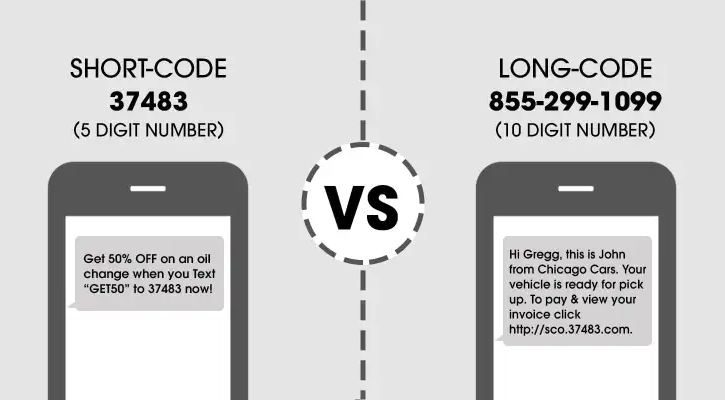Power of SMS Shortcodes
 Jake Paul
Jake Paul
In the ever-evolving landscape of digital communication, SMS shortcodes have emerged as powerful tools for businesses seeking to enhance their marketing strategies.
These succinct numerical sequences, typically 5 to 6 digits long, provide a convenient and efficient way for companies to engage with their audience. In this article, we'll delve into the world of SMS shortcodes, exploring their benefits, applications, and best practices for maximizing their impact.
Understanding SMS Shortcodes:
SMS shortcodes are specialized phone numbers designed for sending and receiving text messages. Unlike traditional phone numbers, these short, memorable sequences are easier for customers to recall, making them an ideal choice for marketing campaigns, promotions, and interactive services. Commonly prefixed with a keyword (e.g., text "JOIN" to 12345), SMS shortcodes allow businesses to create seamless and engaging user experiences.
Benefits of SMS shortcodes:
Memorability: Shortcodes are easy to remember, facilitating quick and effortless customer engagement.
Increased Response Rates: The simplicity of texting a shortcode encourages higher response rates compared to longer phone numbers.
Brand Recognition: Customized shortcodes enable businesses to reinforce brand identity and enhance overall recognition.
Multi-Channel Integration: SMS shortcodes can be integrated into various marketing channels, including print, digital, and broadcast media.
Applications of SMS shortcodes:
Marketing Campaigns: Create compelling calls to action by inviting customers to text a shortcode to receive exclusive offers, discounts, or product information.
Contests and Giveaways: Engage your audience with interactive contests, polls, and giveaways, driving participation through shortcode-based entry mechanisms.
Informational Services: Provide on-demand information services by allowing users to text a shortcode for news updates, weather forecasts, or product details.
Opt-In Subscriptions: Build a subscriber base by inviting customers to opt-in for updates, newsletters, and alerts via shortcode.
Best Practices for SMS Shortcodes:
Clear Call-to-Action: Clearly communicate the desired action, using concise and compelling language to encourage participation.
Opt-In Compliance: Always ensure that users have opted in before sending SMS messages to comply with privacy regulations and maintain a positive user experience.
Integration with CRM Systems: Integrate shortcode data with customer relationship management (CRM) systems to track and analyze customer interactions effectively.
Cross-Channel Promotion: Promote your shortcode across various channels, including social media, email, and traditional advertising, to maximize reach.
Case Studies:
Highlight successful implementations of SMS shortcodes, showcasing real-world examples of businesses that have achieved significant results through the creative and strategic use of shortcodes in their campaigns.
Conclusion:
SMS shortcodes represent a dynamic and versatile tool in the marketer's arsenal, offering a direct and impactful way to connect with customers. By understanding the benefits, applications, and best practices associated with SMS shortcodes, businesses can harness their potential to drive engagement, build brand loyalty, and achieve marketing success in the digital age.
Subscribe to my newsletter
Read articles from Jake Paul directly inside your inbox. Subscribe to the newsletter, and don't miss out.
Written by

Jake Paul
Jake Paul
I am a technical content writer with experience in sales and marketing.